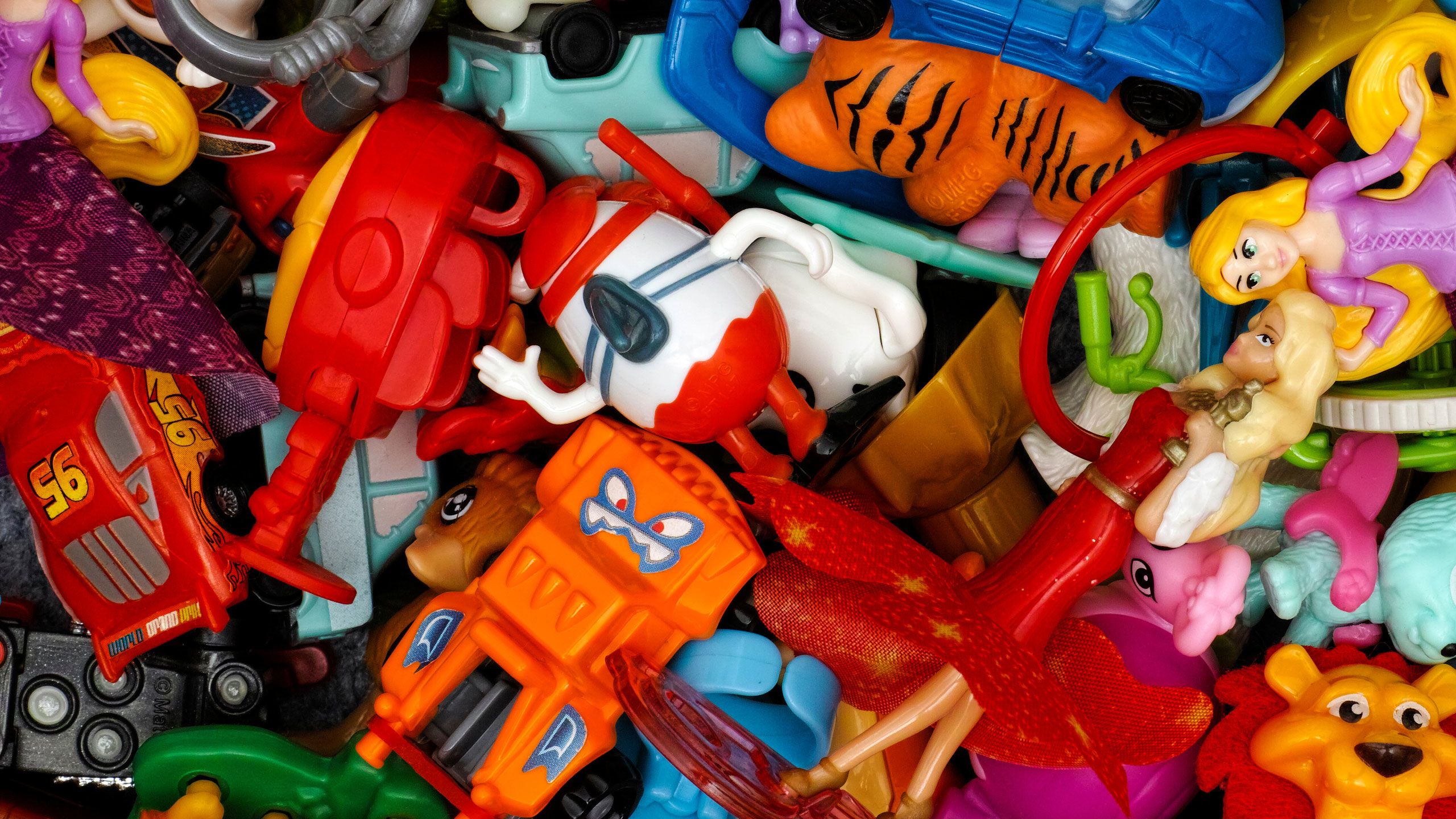Fast, Furious, and Cheap
The Unstoppable Rise of Novelty Goods in America

Research Week kicked off at Rutgers University–Camden with a keynote lecture, “The Latest Novelties: New Goods and New Ideas in 19th-Century America,” presented by Professor of History Wendy Woloson. It certainly was novel for a historian to be the centerpiece of this principal Research Week event, the Seventh Annual Faculty Fellowship Lecture.
Vice Chancellor of Research Thomas Risch said he was delighted to have Woloson lead the week because it is important that the word “research” is not simply defined as inquiry into the natural and hard sciences.
“Research is often thought about in very narrow terms,” Risch said. “We tend to only think about the person in the lab with the white coat on, toiling away in anonymity. However, research is so much more than that; it is authorship, scholarship, and creative activity.”
Woloson, author of Crap: A History of Cheap Stuff in America, explored how the rise of novelty goods, from the 19th century to the “Temufication” of today’s America, forms a complex stream of perpetual distraction. These disposable interruptions have impacted not only material culture but other aspects of American life, including consumerism, the rapid expansion of capitalism, growing tensions between urban and rural life, and even how the concept of time has compressed and sped up in the face of so many readily available novelties.

“We used to take more care with things,” Woloson said. “We mended, repurposed, passed down functional possessions, and made or bought things that were robust and well-crafted.”
Woloson said the rising tide of cheap goods became a flood in the 19th century with the arrival of eye-catching items like fortune-telling mermaids, “magical” labor-saving kitchen appliances, disposable games and puzzles, and other cheap products that promised (but may not have delivered) a better lifestyle.

Professor of History Wendy Woloson and Vice Chancellor of Research Thomas Risch attend Research Week.
Professor of History Wendy Woloson and Vice Chancellor of Research Thomas Risch attend Research Week.

Woloson provided examples of her archival research in the form of newspaper and magazine articles and advertisements, analytics, and statistics. She showed how marketing was used to pique the interest of an increasingly bored American public looking for ways to lighten workloads both on farms and in the home. She described how central to the spread of such novelty goods, particularly in rural areas, were the many peddlers who morphed into the traveling salesmen that flourished across the country in the 20th century, selling everything from encyclopedias to hairbrushes, and much more.
“Today we have Temu,” Woloson said, referring to the giant Chinese online marketplace that sells heavily discounted consumer goods. “The growth of this company says it all. The churn for new goods is now relentless.” Woloson noted that Temu’s sales have risen exponentially since 2022.
During a lively Q&A, Rutgers–Camden Chancellor Antonio D. Tillis was first to raise his hand. “As the eldest grandson, it was my duty to keep my grandmother company in the kitchen while she cooked,” he said, adding that he still cherishes her cast-iron skillet as his prized family heirloom.
Tillis said that in these days of hyper consumerism, “We are at risk of forgetting not just our past, but the value of our family connections.”
Woloson, who delivered her lecture with facts, figures, and a measure of good humor, ensured each attendee left with a contemporary version of the fortune-telling mermaid—a “miracle fish.” Placed in the palm, the thin, red, plastic fortune-telling fish—according to how it moves—will reveal if the user is in love, is indifferent, fickle, passionate, false, or even dead. Holy crap, indeed.
Woloson is the recipient of a 2023 Chancellor’s Grant for Research.

Rutgers–Camden Chancellor Antonio D. Tillis and Professor of History Wendy Woloson
Rutgers–Camden Chancellor Antonio D. Tillis and Professor of History Wendy Woloson

"Miracle Fish"
"Miracle Fish"

Design: Beatris Santos
Photography: Kate Blair
